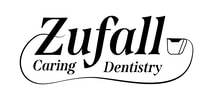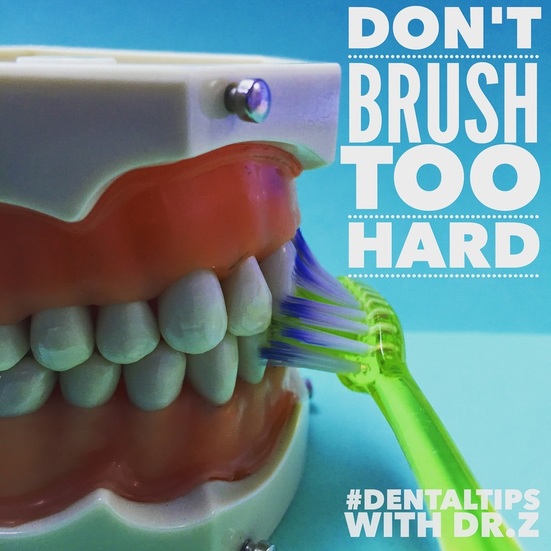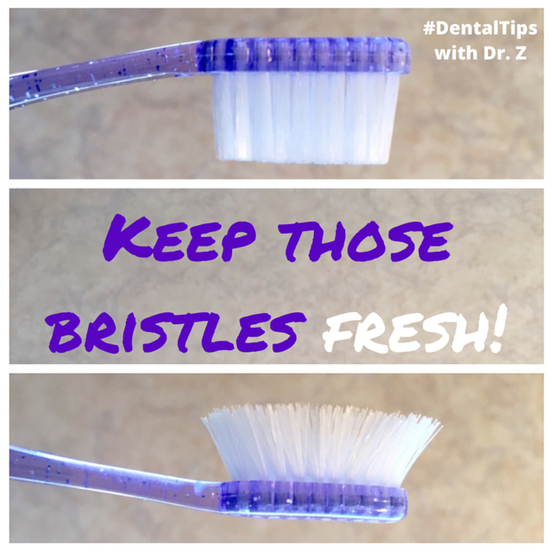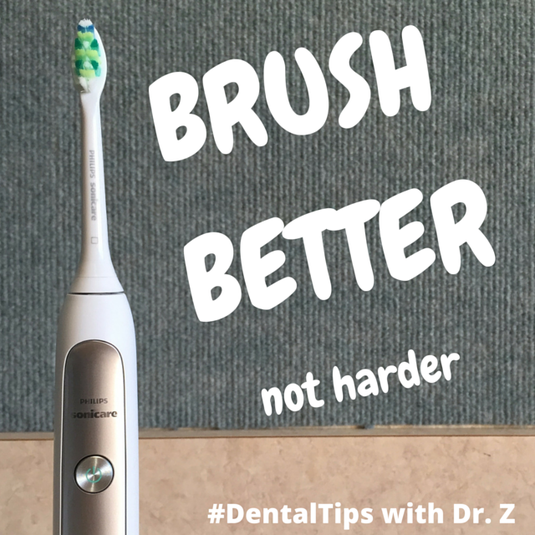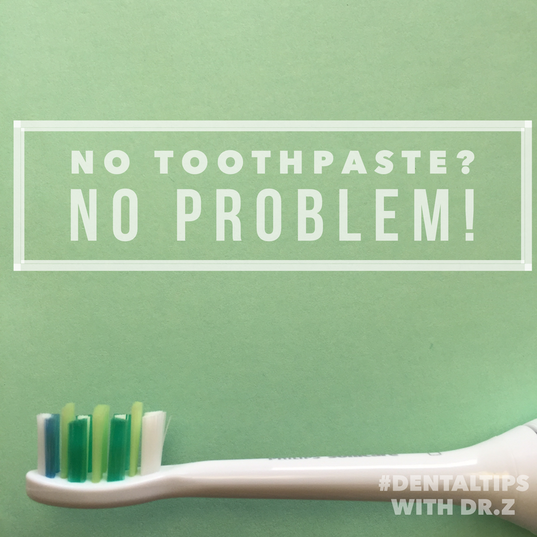Even if you’re the most diligent brusher, chances are that you can still learn a thing or two about brushing your teeth! Here are five things that you may not know that can help you keep your smile for a lifetime:
All the photos displayed our from our Instagram page! Follow us: @drzufall
All the photos displayed our from our Instagram page! Follow us: @drzufall
|
1) You CAN brush too hard.
When it comes to brushing, it is possible to have too much of a good thing. While it’s important to be thorough when brushing your teeth, applying too much force can actually be harmful to your oral health. Brushing aggressively can create grooves near the gumline that can collect plaque and cause cavities, and can also cause your gums to recede. This exposes parts of the tooth that are more susceptible to decay. So how do you know if you need to tone back your brushing? Check your toothbrush. If the bristles are bent or splayed out, you’re probably using too much force. |
|
2) Don’t forget to brush your tongue.
Have bed breathe even though you brush your teeth regularly? The culprit could be your tongue! Your tongue has fissures that can collect bacteria, which makes it one of the leading causes of halitosis - more commonly known as bad breathe. Brush your tongue or use a tongue scraper to avoid this problem. |
|
3) You should replace your toothbrush several times a year.
Don’t get too attached to that favorite toothbrush. After three to four months, the American Dental Association recommends trashing it and starting fresh with a new one. A toothbrush with frayed bristles simply doesn’t clean as well, which means that even if you’re brushing properly, you could still run into problems. The good news is that at our office, we’re happy to send you home with a new toothbrush after every visit! |
|
4) A stiff brush isn’t necessarily better.
Oftentimes people will avoid brushes with soft bristles because they believe that they don’t clean as well as ones with hard or stiff bristles. This actually isn’t the case. If you’re brushing for two minutes, twice a day, a soft brush will do the trick. Tough bristles can actually be harder on your gums, especially if you brush aggressively (see point no. 1!). |
|
5) No toothpaste? Keep brushing!
Everyone’s had that moment when you reach for the toothpaste only to discover that the tube is empty. But that doesn’t mean you get a free pass on brushing for the day. “Dry brushing” - brushing without toothpaste or water - is actually just as effective at removing bacteria from the teeth. Toothpaste has a number of benefits, such as freshening your breath, protecting your teeth with fluoride and sometimes even removing stains from teeth, so you should still use it when you can. But if you’re out, it’s important to keep brushing until you can buy more. |
